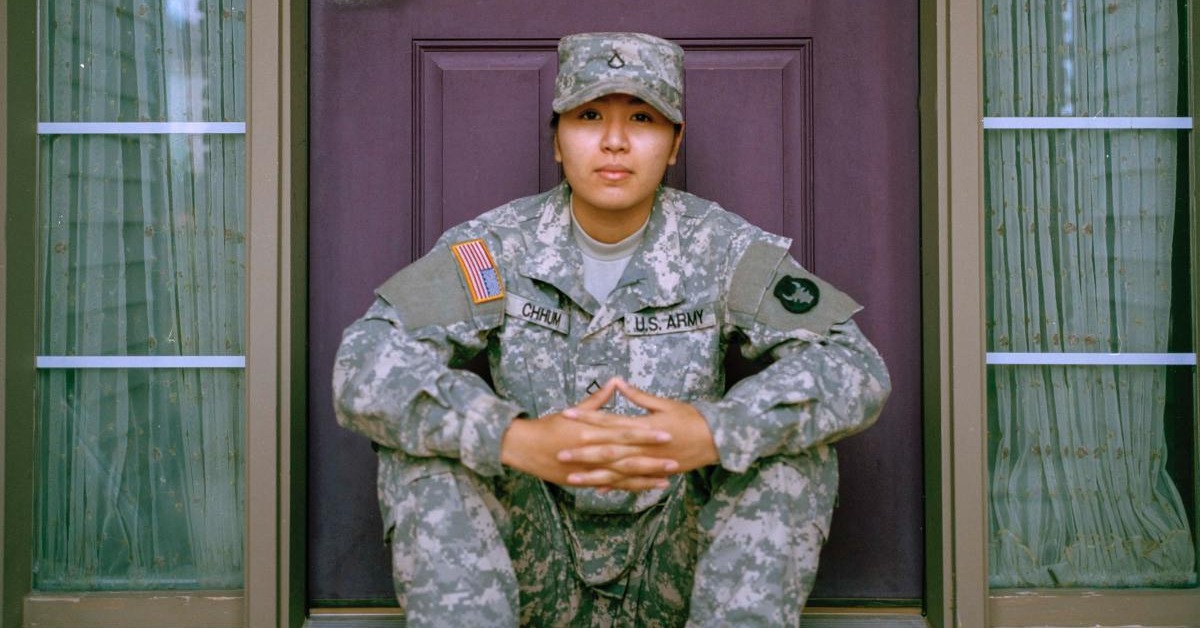
How to Become a Military Social Worker
If you're passionate about improving service members' quality of life [...]
This website may earn a commission if you make a purchase after clicking on a product link in this article
The term ‘social worker’ applies to such a dizzying assortment of fields and practices that the sentiment “I want to be a social worker” arguably conveys very little information. Do you envision a career in clinical social work, providing therapeutic services? Perhaps you see yourself as a social activist, practicing as a community social worker. Maybe your goal is to administer social programs as a public welfare social worker, or to work exclusively within the justice system (justice and corrections social worker) or with military personnel and veterans (military social worker). These are just a few of the many, many available options.
Earning a Bachelor’s of Social Work (BSW), or a Masters in Social Work (MSW) will position you to practice in all these areas, and for others as well. It will also expose you to a number of these disciplines, which should help you determine where you want to specialize (if you haven’t already decided).
Many people enter social work training without a clear idea of where they hope to land. If you’re one of those, have we got a book for you (actually, we have ten!). The books on this list will help you learn about various fields of social work practice and give you a sense of what social workers in different areas do on a daily basis. They also speak to the needs of those served by different social workers, providing some idea of where you might contribute most effectively and fulfillingly.
These perspectives can inform your career path and provide you with a greater sense of purpose. They may help guide your choice of specialization, enabling you to begin your specialized training earlier in your education than you otherwise could.
By Jessie Klein
Klein takes a deep look at the bullying and violence that have changed the landscape for schools and children across America. Among the causes she identifies are destructive trends in aggression and competition, as well as an overarching need among youth to be popular and achieve status among their peers. Klein also explores a range of related and often untreated problems associated with school violence: high rates of suicide, anxiety, depression, eating disorders, self-cutting, and substance abuse. After addressing the sources of the problem, The Bully Society speaks to the need for restorative approaches in response to the dangerous and dominant culture in American schools in order to transform them into more compassionate communities.
Throughout The Bully Society, Klein makes it clear that the shootings in our nation’s school have complex and underlying causes. The violence problem is also a mental health problem…is a community problem…is an adolescent problem…is a behavioral problem…is a school culture and policing problem, and so on. Anyone interested in school social work, adolescent practice, or the ongoing violence in our nation’s schools will be engrossed by this discussion.
By T. Laine Sales and Terry A. Wolfer
This book offers insights into the world of social work through a collection of real-life cases, recounted and explored through case analysis. Significantly, these cases are culled from the experiences of BSW-level generalist social workers; because most such works focus on master’s-level practitioners, this book offers insights too seldom found in social work literature.
Decision Cases takes the reader through the different practice settings in the BSW’s work with individuals, families, groups, and communities. The book provides walkthroughs of BSWs identifying core issues, defending their position, recommending a plan, and articulating the reasoning behind their decision. As such, reading this book is a bit like stepping into the shoes of a social worker deep in practice. Each account is fascinating, and future social workers will find themselves learning not just about different practice areas but also about the critical-thinking skills and social work theories applied to real cases.
By Eric Schlosser
Fast Food Nation is one part exposé on how the food industry has taken advantage of the nation’s poor and widened the gap between the haves and have not, and one part window into how fast food has fueled an epidemic of obesity in America. The book explores how poor and low-income families are particularly vulnerable to poor nutrition and obesity due to their lack of funds, lack of access to grocers with affordable and fresh produce, and lack of reliable transportation to better food sources.
The heightened concentration of inexpensive fast food restaurants in underprivileged neighborhoods — especially near schools — exacerbates this already troubling situation. Shining a light on our nation’s chronic nutrition crisis, Fast Food Nation is of particular interest to child and family social workers, school social workers, and social workers in policy.
By Gabor Maté
Maté draws on his twenty years a medical doctor and his work in the field of substance abuse disorders to share his holistic approach to understanding and treating those suffering from the disease. He deviates from the substance-abuse-as-a-medical-only-condition approach to suggest that the condition results from a confluence of factors: childhood, family environment, genetics, neurological development, and brain history, to name a few. Like many books and forays into the roots of alcohol and drug disorders, this book offers an important perspective, albeit no groundbreaking cure. Maté does offer a zero-blame lens and argues against criminalization, which comports to the disease model embraced in treating substance abuse disorders.
Social workers drawn to the field of substance abuse disorders will find that the National Association of Social Workers identifies substance abuse (and use) as a stand-alone practice area, offering advanced certification to social workers in this field. However, experts in the field of drug and alcohol use know that a combination of modalities are often used to treat this population; Maté is one more voice offering compelling insights.
By Dan Savage
Dan Savage is a widely syndicated sex advice columnist and media pundit; his column on sexuality, called “Savage Love,” regularly appears in many local newspapers and alternative weekly newspapers. Savage is also a LGBT activist who used his position as an influencer to found the “It Gets Better Project” after learning of the suicide of 15-year-old Billy Lucas, who was bullied for being gay. As part of the project, Savage and his husband Tim Miller uploaded a series of YouTube videos, sharing their own stories of bullying and how they went on to build meaningful, successful lives. The success of these videos inspired a book of personal essays written by celebrities, non-celebrities, teens and political leaders about their experiences as gay men and women.
These personal testimonials offer hope to any LGBT youth who is struggling with identity and bullying. Social workers interested in this new and emerging practice area will find this book — and Savage’s online initiatives — helpful in better understanding the issues that impact the LGBT community.
By Allen Frances
As a former chairperson of the DSM4, Frances knows a thing or two about this diagnostic bible for mental illness, which is used by all clinicians in the mental health field. Saving Normal is Frances’ response to a new edition of the DSM launched in 2013 — the DSM 5 — which he sees as mired in excessive overreach. His book argues against overdiagnosis and overmedication, suggesting that everyday struggles and existential sufferings — such as grief — do not necessarily quality as psychological conditions.
Frances brings a provocative lens to the DSM and makes important arguments about the overdiagnosis of what he terms ‘normal’ behavior. Aspiring social workers should understand the significance of the DSM in the world of mental health, and, importantly, in the insurance industry; the DSM provides a coding and diagnostic system entrenched in both, and provides the basis for insurance reimbursement rates. As such, understanding the DSM, warts and all, is critical for any practicing social worker who accepts health insurance.
By Rinku Sen
Sen is a renowned activist and trainer with expertise in guiding social change groups. In Stir It Up, she draws on her experiences as an activist with women’s groups focused on economic justice. The book offers concrete tasks, steps, and key organizational strategies for mobilizing and for driving an effective agenda. As such, Stir it Up is an invaluable guide on how activist groups can make things happen, from reaching campaign goals to building strong alliances and networks to designing smart media strategies.
Sen’s book teaches social workers to think strategically, an essential and often overlooked skill in social work. Social workers headed into this practice area may find it ironic that smart social action benefits from an equally smart business plan rather than just fiery rhetoric and passionate activism; they are highly likely to find the guidance provided by this book practicable and effective.
By Cris Beam
This highly praised book — it made both the New York Times’ Notable Books and NPR’s Best Books lists in 2013 — takes an-depth look at the world of foster care through both a historical perspective and the personal accounts of foster care children and their parents. Exploring the byzantine, maddening bureaucracies of the foster care system, Beam details how easily individuals become lost in a web of procedures, regulations and inefficiencies. With equally dispiriting poignancy, the book recounts how children in foster care are too often shuffled from home to home in search of a forever family. Unsurprisingly, Beam provides a sharply critical indictment of the foster care system and its failures.
To The End of June touches on some of the primary work that social workers in the area of children, youth, and family social work perform, including placing children in foster homes and strengthening their families in the hope they can return. Offering a realistic picture of American foster care as it is today, this book should inspire social workers to enter the complex and ineffective system and make it better.
By Lisa Damour, Ph. D
Damour has written a number of books on the unique issues and concerns of young girls in our society. Under Pressure was inspired when Damour noted a significant increase in the stress and anxiety of the young girls she worked with in her practice. Subsequent research confirmed her anecdotal observations: girls today are more stressed than ever. This book details her research, examines the distinct features of this group, and offers insights on how to help girls manage their emotions and the social anxiety that can rule their lives.
Future social workers may relate to and be interested in the skyrocketing anxiety impacting this current generation. After reading this book, they may be further inspired to work with teen girls to address these pressing issues, or like Damour, pursue a position in a school setting, performing school-based social work.
By Kay Redfield Jamison
Dr. Jamison wrote this memoir from the perspective of a clinician/researcher, and, notably, as someone who has bipolar disorder. An Unquiet Mind describes her struggles with mental illness, the wild careening highs and lows of bipolar illness, and her attempt at suicide. The book provides is a fascinating and hard look at what it is like to live with severe mental illness and how destructive and erratic it can be. Critics of the book point to the author’s privileged upbringing and access to supports; defenders counter that these very details demonstrate that mental illness doesn’t discriminate,and that privilege and wealth are no barrier to the life-changing force and dramatic, frenzied impact of mental illness.
Questions or feedback? Email editor@noodle.com

If you're passionate about improving service members' quality of life [...]

Pediatric social worker means much more than the job title [...]

If you're passionate about improving older adults' quality of life [...]

Whether you're an experienced professional considering a career change or [...]

Your fool-proof guide to knowing that you're up for every [...]
Categorized as: Social Work, Social Work & Counseling & Psychology